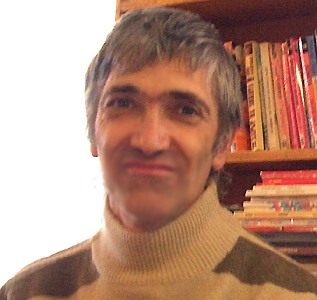The clock tower in Zlatitsa (Central South Bulgaria) has turned over the years into the most popular place and a symbol of that Bulgarian town. Many old clock towers in Bulgaria, some of them built 300 years ago, preserved their authentic look. Nowadays, those clock towers are among the symbols of the Bulgarian towns and villages.
The first clock towers in Bulgaria were built in highly-developed towns and cities that were usually trade centers. The clock tower in the small mountain town of Zlatitsa was constructed back in 1777. Many clock towers built at that time resemble the ones made in Western Europe. The town clock played a very important role at that time, because all craftsmen knew when to start and finish work. Most tradesmen and craftsmen believed that time was money and relied on those clocks a lot.
Nowadays, when people have access to a series of electronic devices, the old clock towers stir even greater curiosity and cause admiration in people. The town clock tower in Zlatitsa was declared cultural monument and the tower bell is still measuring time precisely. In the 18th century the town of Zlatitsa was a center of a whole district and the clock tower was an evidence of progress and significance.
The tower was once used as surveillance and defense facility. That is why a lot of apertures were left in the tower's walls during its construction. Czech historian Konstantin Jirecek visited the town in 1883 during his trip across Bulgaria. According to his evidence, it was one of Bulgaria's oldest towers and was built simultaneously with similar clock towers in Shumen, Svishtov and Berkovitsa. Dimitar Ovcharov who works as a librarian at the local community center told Radio Bulgaria details about the clock tower in Zlatitsa.
 “I remember that the clock tower was measuring time when I was still a young boy. According to legends, the bell tolls echoed across the two mountain passes Galabets and Koznitsa when no sound of vehicles or trains could be heard around. The building has a quadrangular shape and its foundation is in the shape of a square. It is nearly 18 meters tall, including the sharp metal-plated roof. The clock tower was built mainly of stone and wood. It was constructed with traditional materials, but survived over the years, because it was made by skillful craftsmen from Zlatitsa and the neighboring villages. The first clock mechanism of the old tower was dismantled after Bulgaria's liberation from the Ottoman rule and no one knows what happened to it. The clock tower was slowly decaying, but local citizen Pencho Nedev managed with his own finance to restore that building. He hired personnel and ordered a new clock mechanism driven by stone and ropes. Today, the town clock tower is a cultural monument, but visitors are not allowed to enter the building, because there is not enough space and one can climb to the top on a very old wooden ladder”.
“I remember that the clock tower was measuring time when I was still a young boy. According to legends, the bell tolls echoed across the two mountain passes Galabets and Koznitsa when no sound of vehicles or trains could be heard around. The building has a quadrangular shape and its foundation is in the shape of a square. It is nearly 18 meters tall, including the sharp metal-plated roof. The clock tower was built mainly of stone and wood. It was constructed with traditional materials, but survived over the years, because it was made by skillful craftsmen from Zlatitsa and the neighboring villages. The first clock mechanism of the old tower was dismantled after Bulgaria's liberation from the Ottoman rule and no one knows what happened to it. The clock tower was slowly decaying, but local citizen Pencho Nedev managed with his own finance to restore that building. He hired personnel and ordered a new clock mechanism driven by stone and ropes. Today, the town clock tower is a cultural monument, but visitors are not allowed to enter the building, because there is not enough space and one can climb to the top on a very old wooden ladder”.
There is a town park nearby the clock tower as well. The area is well-maintained. It is full of greenery and has become the favorite place ofthe local citizens. There is also an open-air cafeteria nearby and the tall pine-trees create a fresh feeling during the hot summer days.
Photo: Gergana Mancheva
English version: Kostadin Atanasov
Ribnovo, the magnetic Rhodope village, which until a decade ago lived in its own encapsulated world far from globalization, now warmly welcomes tourists. Its residents are Bulgarian-Muslims and are distinguished by their preserved way of life, colorful..
Where will the new year take us? The New York Times helps us start our travels with suggestions from its annual list of the 52 best places to visit in 2025 . Among them, Bulgaria stands out as an attractive destination that focuses the attention of..
A 4-5% growth in the number of foreign tourists is expected during the winter season. This forecast was made by Ivan Groshev, chairman of the Association of Incoming Agencies, in an interview with the Bulgarian National Radio...
Ribnovo, the magnetic Rhodope village, which until a decade ago lived in its own encapsulated world far from globalization, now warmly welcomes tourists...

+359 2 9336 661
